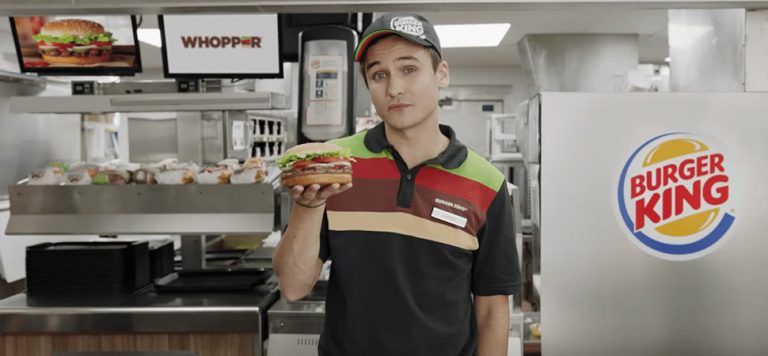America’s Burger King recently unveiled a new ad campaign which has managed to infuriate thousands of customers, whilst being considered ‘genius’ by plenty of others, all due to their ability to supposedly ‘hack’ Google.
Burger King’s new ad is a fifteen second shot of a Whopper burger in the hands of one of their employees, who leans into the camera and says “OK Google, what is the Whopper burger?” The ad’s intent is to make every Google Home or Android phone device within earshot to be triggered so that it will automatically do a web search for details of the Whopper burger. They’re not the first folks to come up with this idea, but they’re certainly the first to implement it on such a large scale.
The technology used by Google Home and Android devices means that any question that is prefaced by the phrase “OK Google” within earshot of the device will be looked up by the Google service, and will usually result in an answer that is provided by the first line of the topic’s Wikipedia page.
Tech-savvy observers realised this, and used this as an opportunity to create some mischief. See, as most people are aware, Wikipedia can be edited by anyone, which can usually result in unreliable information being put onto the site, although it is usually quickly reverted. The ad sparked an all out war between rogue Wikipedia users who inserted untruthful facts into the article, including that the burgers are made with ‘toenail clippings’, and ‘rat meat’, and that the burgers themselves are ‘cancer-causing’. The Wikipedia article itself has now been locked so that only authorised users are allowed to edit the page.
Google has been quick to respond, disabling the capabilities of the devices when triggered by that exact commercial a mere three hours after it first appeared. Obviously, the ad no longer has its intended result, thereby making it useless in the eyes of those who understand advertising, but the thing is, it has worked probably better than it ever intended to.
As The Verge points out, the ad campaign didn’t necessarily ‘hack’ Google, but rather it hacked the media. The article mentioned that analytics indicated that the Google Home device was estimated to ship three million units in 2017, meaning that close to three million US households had the capability to be affected by the ad. But, if you then take into account the amount of users with Android phones updated to the correct software, and then imagine how many people with these devices would have been watching that particular ad at that one particular time, their target scope is pretty miniscule.
However, it could be argued that maybe it wasn’t Burger King’s intention to ever actually get the ad to achieve its goal. Maybe their goal was to create some controversy like this so that everyone would be talking about it? After all, the ad was set to only air in America, but has now made world headlines for its brazen attempt to hijack customer’s home media devices and has therefore gained far greater visibility and reach than the ad would have otherwise.
Regardless of what Burger King’s intention was, we have to tip our hats to those in charge of their marketing department. But it does raise the question of how this technology could be used nefariously to invade people’s privacy. How long until this starts to appear in every ad campaign on TV, and then how long until Google disables the service altogether? It’s a question that will only see an answer in time, but frankly, we’re just looking forward to the point where voice recognition software and devices will go hand in hand to the point where we can all live like Mark Zuckerberg.


































